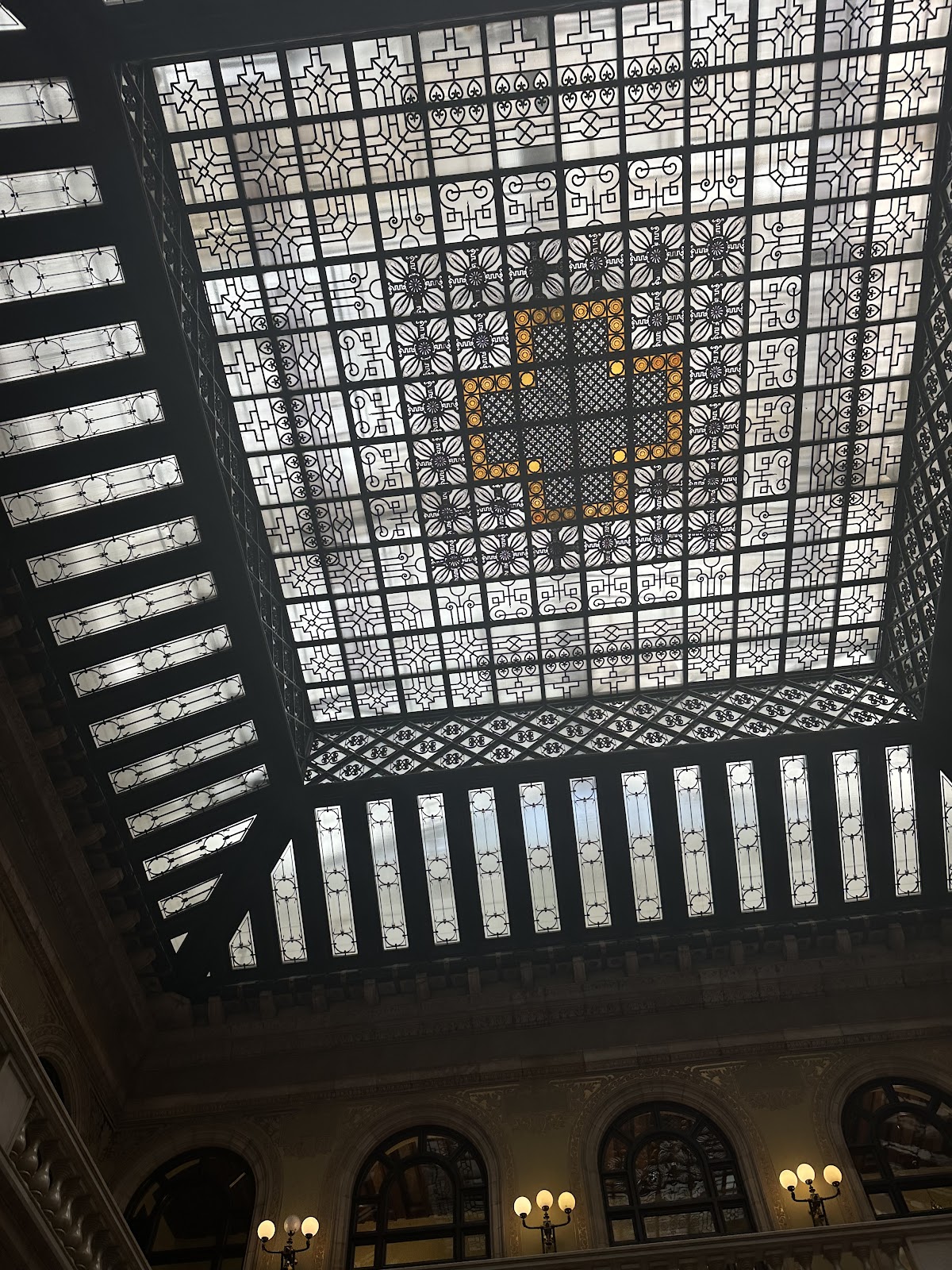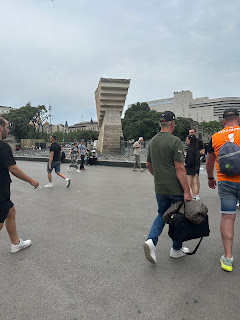Parliament Visit
Parliament Visit
Connection to POL 150
Visiting Barcelona’s Parliament (Parlament de Catalunya) offers a rich opportunity to explore the concept of citizenship, not just as a legal status, but as a dynamic, participatory relationship between individuals and the state. For example, witnessing citizenship in action. By visiting the Parliament, I saw how representative democracy functions at a regional level. Catalan citizens elect their own government, which debates laws, sets policies, and manages regional affairs. This experience reinforces the idea that citizenship is not passive, but it involves participation, voting, debating, and holding representatives accountable. Secondly, we can look at exploring multiple layers of identity and belonging. Catalonia has its own language, institutions, and a strong regional identity. Visiting the Parliament helped me understand how citizenship can be complex and multi-layered, like how many people in Catalonia feel both Spanish and Catalan, or sometimes only Catalan. This challenges the idea of a single national identity and shows how citizenship is often about cultural, emotional, and political belonging, not just paperwork. Finally, seeing the tensions between citizenship and the state. The Catalan independence movement, often discussed or debated in Parliament, raises critical questions about what it means to be a citizen when your political identity doesn’t align with the national government. For example, some Catalans voted in the 2017 independence referendum, which was declared illegal by Spain. This highlights how citizenship involves struggles over rights, recognition, and representation. In summary, visiting Barcelona’s Parliament connects directly to citizenship by showing how citizens influence their government, how identity shapes political belonging, and how citizenship can involve both empowerment and conflict. It moves the concept of citizenship from an abstract idea to a real, lived experience, one shaped by history, politics, and active participation.
Connection to POL 130
Visiting Barcelona’s Parliament (Parlament de Catalunya) offers a clear, real-world lens into the concept of institutionalization, which is the process by which political practices, norms, and power structures become formalized, stable, and widely accepted over time. For example, seeing how political power is formalized. The Parliament itself is a symbol of institutionalized authority. It turns the abstract idea of governance into a visible, structured reality, with elected representatives, formal procedures, and a legal framework. You see how decisions are not made spontaneously, but through institutional processes like debates, votes, and commissions. Secondly, understanding regional autonomy as an institutionalized system. Catalonia’s autonomous government, including its Parliament, is the result of Spain’s post-Franco institutionalization of democracy and regional autonomy. The Statute of Autonomy and the Spanish Constitution gave Catalonia official powers over language, education, and culture, making regional governance a permanent, legal part of Spain’s political system. Lastly, recognizing the limits and conflicts of institutionalization. While the Parliament reflects institutionalized governance, its role in contentious debates like Catalan independence also shows the fragility of institutions. For example the 2017 referendum and the subsequent legal response from Madrid revealed tensions between institutionalized authority (Spain’s constitutional order) and popular demands that challenge that order. This raises questions about whether institutions adapt to new realities or become barriers to change. In summary, Visiting Barcelona’s Parliament helped me understand institutionalization by showing how political power is organized and stabilized through rules and structures, how institutions embody legitimacy and continuity, and how they can also be sites of conflict and negotiation, especially in regions with strong identity movements. It’s a powerful reminder that institutions are not just buildings or systems but are living frameworks shaped by history, law, and the people who challenge or defend them.
Compare & Contrast
Institutionalization and citizenship are connected by mutual reinforcement. Institutionalization creates the structures, like parliaments, constitutions, and laws, that make citizenship meaningful and functional. Citizenship, in turn, gives legitimacy to institutions. Institutions gain authority because citizens participate in and accept them. One example from Barcelona is the Catalan Parliament that we went and saw because it is an institutionalized space that allows Catalan citizens to exercise their democratic rights by voting, petitioning, and expressing political identity. Institutionalization and citizenship differ by the nature of each one. For instance, institutionalization is often top-down where institutions are created to organize power. Whereas citizenship can be bottom-up, where citizens push for rights, recognition, and reform.
New Knowledge
After visiting the Parliament of Catalonia and learning more about the political dynamics in Barcelona, I now understand that Spain is far more regionally diverse and politically complex than I originally thought. Before this experience, I saw Spain mostly as a unified nation with a shared culture, language, and history. But now I realize that Catalonia has its own strong identity, language, and sense of nationhood, and that many Catalans feel a deep cultural and political disconnect from the central Spanish government.
I also didn’t fully grasp the lasting impact of Spain’s transition to democracy. I’ve learned how decisions made during that time, especially the effort to avoid conflict by not addressing past injustices, continue to shape tensions today. Visiting the Parliament and hearing about the Catalan independence movement helped me see how citizenship and democracy are still being negotiated, and how institutions can be both empowering and limiting depending on whose voices are heard.
Most of all, I came away with a new appreciation for how history, identity, and politics are deeply intertwined in Spain, and how important it is to listen to different perspectives within one country.
Some benefits of this trip include understanding regional identity and autonomy, experiencing democracy and citizenship in action, and connecting history to present day politics.







Comments
Post a Comment